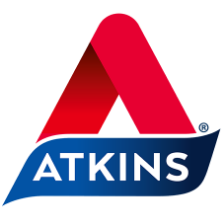- Home►Get inspired►Articles►high protein
High Protein – a guide to high protein foods and their benefits


Scroll directly down to

This article will help you to understand what high protein is, the best high protein sources and which are high protein foods.
What is high protein?
Protein is one of the 3 macronutrients, the other 2 being fat and carbohydrates. What makes a diet high in protein is when it exceeds the guidelines of 0.8g of protein per kg of bodyweight.
Protein is made up of amino acids and these amino acids join together to form the many proteins in your body. In short, eating protein is important as it’s an essential nutrient that your body needs.
Some people choose a high protein diet as they are trying to increase muscle mass, trying to lose weight or are recuperating from injury.
What are the best high protein foods?
Here are some of the best sources of high protein:
- Meat such as chicken, pork, beef, lamb or turkey
- Fish such as cod, salmon, mackerel etc.
- Eggs cooked any way (avoid frying if eating lower fat)
- Dairy foods such as Greek yoghurt, milk, cheese
- Legumes such as beans, chickpeas
- Nuts & seeds
- Protein powders such as whey protein, casein protein, soy protein or pea protein
Start on Atkins today and receive support, tips and meal plans for free!
What are good high protein snacks?
Some good high protein snacks include:
- Eggs, such as boiled eggs
- Nuts & seeds
- A serving of protein powder, such as whey or casein
- Greek yoghurt
- Leftover meat such as chicken leg
What are some good high protein meals?
Here are some examples of high protein breakfast, lunch and dinner:
Breakfast
- Eggs cooked any way, such as fried, boiled or poached
- Greek yoghurt sprinkled with nuts and berries
- High protein pancakes
- Cottage cheese with avocado
Lunch
- Choose a high protein source, such as chicken, tuna, turkey or beef and serve with a variety of salad vegetables, such as lettuce, tomato, cucumber. Top with feta, or similar cheese, and drizzle with olive oil.
- Omelette made with 3 eggs, mushrooms and bacon
- Quinoa and chicken bowl (Quinoa is the highest protein grain)
Dinner
- Steak served with a variety of green, cooked vegetables
- Chicken or beef stir-fry
- Prawn & rice with Chinese vegetables, such as Pak-choy
What are some of the benefits of a high protein diet?
Depending on your goal, high protein diets can have a beneficial effect on the body in a variety of ways.
If you’re trying to lose weight, then high protein diets are great for supressing your appetite and food cravings tend to disappear.
High protein diets make the body burn more calories due to the ‘thermic’ effect of protein. This means your body’s metabolism actually increased just through the act of eating higher protein.
High protein diets supress the hunger hormone, Ghrelin, and increase the appetite supressing hormones; making a high protein diet easier to stick to.
If you’re trying to build muscle, then amino acids are synthetized into muscle and they are the building blocks of protein. So eating a high protein diet will help you to gain more muscle mass. Protein also helps to rebuild and repair muscle tissue (and other tissues in the body, such as skin, hair & nails) so you’ll recover more quickly from exercise.
Start on Atkins today and receive more meal plans for free!
What are some other benefits of a high protein diet?
As well as decreasing appetite, increasing metabolic rate and helping you to build more muscle. Higher protein diets have the following benefits:
- Good for your bones – those who eat more protein tend to have stronger bones and less chance of developing osteoporosis.
- May reduce high blood pressure, this was shown in a review of over 40 controlled trials.
- You’ll maintain the weight lost by following a high protein diet which is often the biggest challenge after achieving weight loss goals.
- Helps you recover from injury. As protein forms the building blocks of your body’s tissues, a higher protein diet can help you recover from injury or illness.
Start on Atkins today
Do you want to lose weight or maintain your weight? Atkins is there to help you!
Sign me up for Atkins
